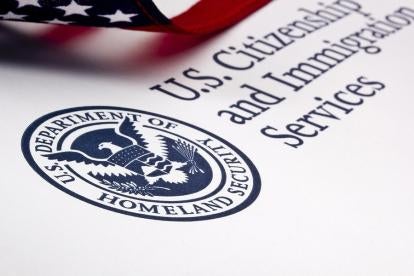The USCIS announced on March 3, 2017 that beginning April 3, 2017, it will temporarily suspend premium processing for all H-1B petitions. According to the USCIS, the suspension may last up to 6 months. While H-1B premium processing is suspended, Petitioners will be unable to file Form I-907, Request for Premium Processing Service for a Form I-129, Petition for a Nonimmigrant Worker which requests the H-1B nonimmigrant classification. The USCIS stated it will notify the public before resuming premium processing for H-1B petitions.
Given the announcement, it is critical to file as quickly as possible any H-1B petitions for transfer of employers (H-1B ports), amended petitions or extensions of H-1B status while they are still eligible for expedited processing. Please bear in mind that H-1B extensions can only be filed six months in advance of their expiration dates. The need to make this assessment and file extensions during the next few weeks will be critical for those who need to travel after April 3, 2017 (F-1 students or those needing a new H-1B visa), for those who have expiring driver’s licenses, for those seeking to extend their 6-year cap of eligibility, for those who have H-4 spouses who cannot renew their EADs until their spouses extend their H-1B visa status, etc.
Which H-1B Visa Petitions are Affected?
The temporary suspension of premium processing applies to all H-1B petitions filed on or after April 3, 2017. Since fiscal year 2018 (“FY 2018”), cap-subject H-1B petitions cannot be filed before April 3, 2017, this suspension will apply to all petitions filed for the FY18 H-1B regular cap and master’s advanced degree cap exemption (the “master cap”). The suspension also applies to petitions that may be cap-exempt such as change of employer, amended petitions and extensions of H-1B status.
While premium processing is suspended, the USCIS will reject any Form I-907 filed with an H-1B petition. The USCIS has indicated that it will continue to premium process Form I-129 H-1B petitions if the petitioner properly filed an associated Form I-907 before April 3, 2017. However, the USCIS will refund the premium processing fee if:
-
The petitioner filed the Form I-907 for an H-1B petition before April 3, 2017, and
-
The USCIS did not take adjudicative action on the case within the 15-calendar-day- processing period.
This temporary suspension of premium processing does not apply to other nonimmigrant classifications filed on Form I-129 that are eligible for premium processing such as L’s, TN’s, O’s and E-2’s. It only affects H-1B visa petitions.
Instances Under Which USCIS Will Accept Premium Processing For H-1B Visa Petitions Despite The Suspension
Despite the suspension, there are instances under which the USCIS will accept premium processing requests for expedited processing. Under the exceptions, the Petitioner must demonstrate that it meets at least one of the criteria for expedited processing. Such requests will be granted on a case-by-case basis and will be discretionary. Based on our experience, the USCIS grants discretionary relief in very limited circumstances and rarely. The criteria under which the USCIS may consider expedited processing are circumstances such as the following:
-
Severe financial loss to company or person;
-
Emergency situation;
-
Humanitarian reasons;
-
Nonprofit organization whose request is in furtherance of the cultural and social interests of the United States;
-
Department of Defense Petition, or there is another national interest situation (These particular requests for expedited treatment must come from an official U.S. government entity and state that delay will be detrimental to the government);
-
USCIS error; or
-
Compelling interest of USCIS.
Why is Premium Processing Of H-1B’s Being Suspended?
According to the USCIS, the temporary suspension will assist them in reducing overall H-1B processing times. By temporarily suspending premium processing, the USCIS indicates it will be able to:
-
Process long-pending petitions, which they have currently been unable to process due to the high volume of incoming petitions and the significant surge in premium processing requests over the past few years; and,
- It will permit the USCIS to prioritize adjudication of H-1B extension of status cases that are nearing the 240-day mark.




 />i
/>i

